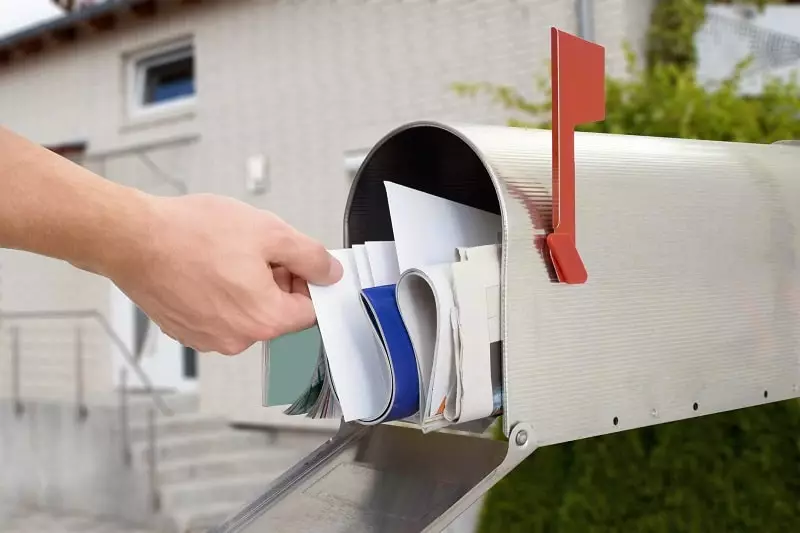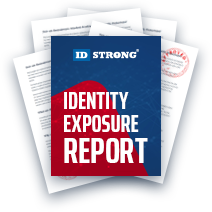What is Mail Theft and How to Prevent It in 3 Simple Steps
Table of Contents
- By David Lukic
- Published: Aug 19, 2020
- Last Updated: Mar 18, 2022
One of the many ways that identity thieves get their hands on your personal information is through mail theft. The United States Postal Service delivers to every home in every state of the U.S. almost every day. That is a lot of mail to keep track of and amazingly, most of it gets to the rightful owners intact.

What is Theft of Mail
It is when someone other than the intended recipient tampers with, steals, or reads mail that does not belong to them. It may include raiding a mailbox to search for cash, credit cards, or other valuables. Sometimes thieves are looking for bank statements, social security checks, or personally identifiable information they can use to steal your identity. Mail theft is a felony with serious consequences (five years in prison and fines of up to $250,000).
What Happens If Someone Is Stealing My Mail
Identity theft is linked to various crimes, and one of the most common is stealing mail. This allows thieves to read the contents of your mail, a typical criminal looking to steal your identity might be able to obtain:
-
Your name and address.
-
Credit card numbers.
-
Bank account numbers.
-
PINs.
-
Telephone numbers.
-
Email addresses.
-
Employment data.
-
Pre-approved credit card offers.
A thief could also steal checks you were expecting or cash someone sends you. Along with the instant windfall, using the information above, they could open up new credit card accounts, bank accounts, loans, or even commit crimes using your name. Identity theft is a serious business, and prevention of it begins with protecting your mail.
How to Prevent Mail Theft
You should frequently check your mail and never leave anything in the mailbox, additionally, ask for signature confirmation, even though it might cost you a little monetarily, it will for sure make you more secure and safeguard your mail. Lastly, never send cash through the mail.
There are several ways you can make yourself more secure and prevent mail theft. Although these points do not guarantee your mail ever getting stolen, it does help you secure your identity and mailbox.

Pick-up and Drop Off of Mail
Try to grab your mail out of the mailbox as soon as it is delivered. If this is not possible and you will be out of town or unavailable, you can have the post office hold your mail until you can pick it up safely when you are back. If you are having packages delivered, contact the post office to hold them for you. There have been a lot of reports on the news of drive-by theft with criminals spotting packages sitting on front porches and then making off with them.
When dropping off mail, either hand it directly to the mail carrier or drop it off in a mailbox close to the pick-up time (these are posted on mailboxes).
Signature Confirmation
If you are sending something valuable or receiving a package, have the sender use signature confirmation so that you are the only one who can sign for it. This service costs a small fee, but it is worth it to know your valuables arrived in the right hands and not some criminal’s.

Never Send Cash
Although it might seem nice to send your grandchild a crisp twenty-dollar bill through the mail for their birthday, thieves are aware of this practice, and they may swipe it before your loved one gets the gift. Never send cash through the mail. Always make out a check instead, which can be canceled if something goes wrong.
How to Report Mail Tampering
Report the incident immediately to the Postal Inspector in your area if you have been the victim of mail fraud. If you were expecting a piece of mail that never arrived, file a report with the local post office. It may be lost, or it may be stolen.
If you witness mail theft, call the police and then call the U.S. Postal Inspection Service at 877-876-2455. You can also make a report online.
Mail Theft Solutions
It is sound advice to get a copy of your credit report each year. You are entitled to a free copy from Experian, TransUnion, and Equifax every 12 months. Get a baseline of where things stand and then watch out for fraud or new accounts.
-
Sign up for credit monitoring with a company like IDStrong.com. They will watch everything for you and alert you to any new activity.
-
Shred personal documents before throwing them out. Thieves don’t only go through your mail; they also paw through the trash to get information.
-
Never leave mail in your mailbox overnight, on weekends, or when you go away for a trip. Arrange with the post office to hold your mail for you until you return.
-
Monitor your credit card and bank statements carefully each month. If you know a credit card is expiring, watch for the new card and sign it immediately.
-
If you are moving, fill out a change of address form.
-
If you live in a sketchy area, consider using a post office box inside the post office instead of home delivery.
-
Consider a neighborhood watch program to keep an eye on everyone’s mail.
-
Sign up for paperless billing and pay things online. This keeps the paper bills out of the hands of criminals.



















































































































